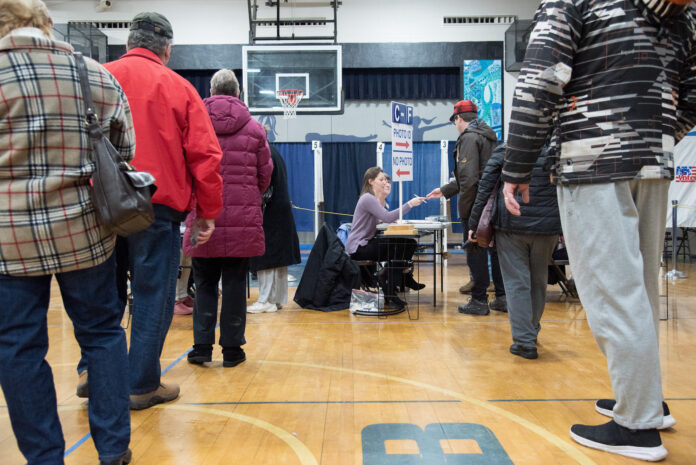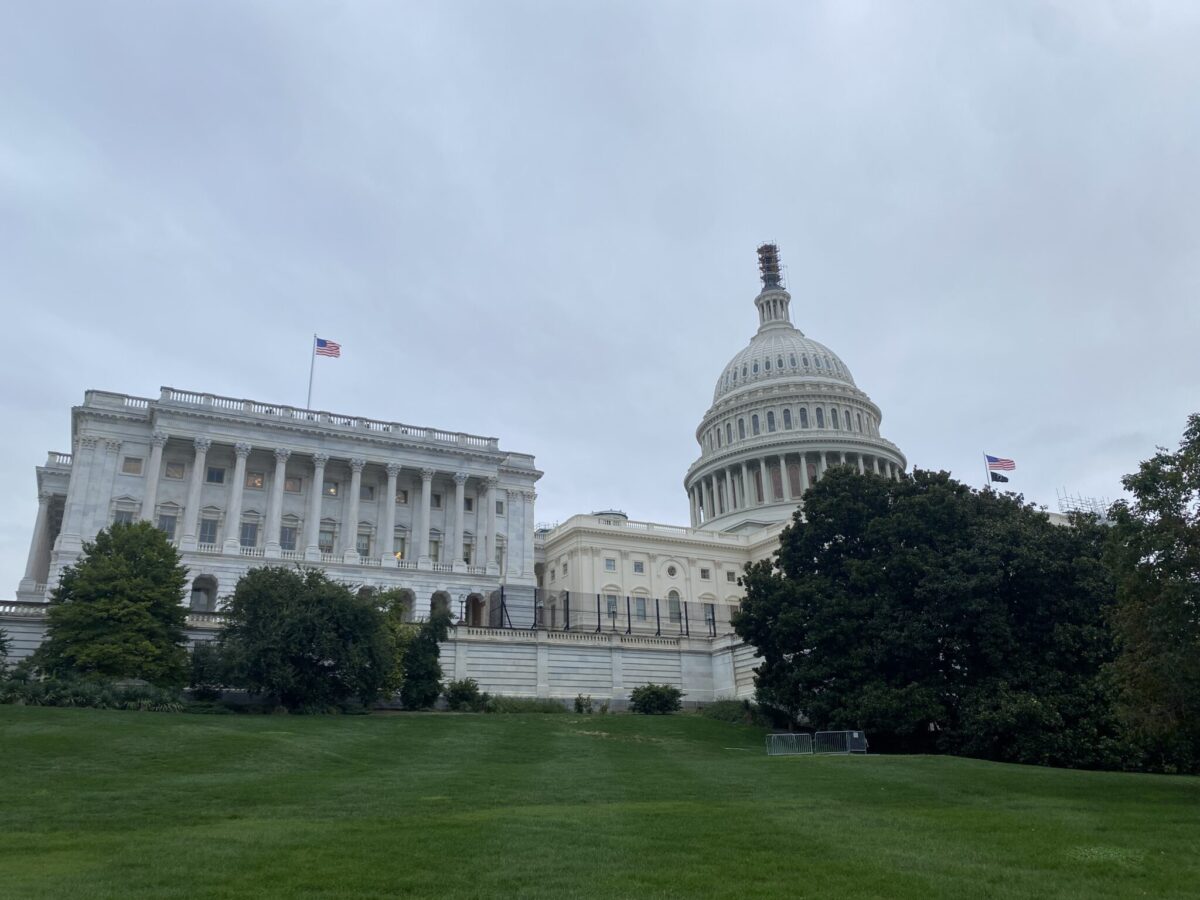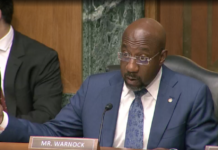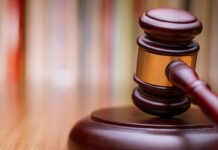
(New Hampshire Bulletin) — Donald Trump won the New Hampshire Republican primary Tuesday, capping off a primary season that saw numerous Republican heavyweights struggle to dislodge his enduring support. The Associated Press called the race at 8 p.m., an hour after most polls in the state had finished. AP also called the Democratic primary for President Joe Biden.
Trump drew on the strength of a dedicated Republican base that preferred to return his presidential style to office rather than topple him with an alternative. As he had in previous primaries, the former real estate mogul blanketed the state in large-scale rallies, avoiding the retail politics that have long defined the primary. His opponents, particularly Republican Gov. Nikki Haley, invested time in town halls and small venue visits like diners and restaurants.
Around the time of the call by the Associated Press, Haley was trailing Trump by about six percentage points. Haley had received an endorsement from Gov. Chris Sununu, who toured the state attending nearly every event of hers in the weeks ahead of the primary.
In Concord Tuesday night, Haley congratulated Trump on his win, saying he “earned” it. But, she added, “New Hampshire is first in the nation. It is not the last. This race is far from over.”
Democratic primary
Joe Biden is the winner of the New Hampshire Democratic primary – whether he wants it or not.
After a monthslong attempt by two candidates to topple the president in the Granite State, and Biden’s own decision to spurn the primary, Biden rode a wave of write-in votes Tuesday to solidify his earliest – if least official – victory. Biden handily defeated his closest competitors, Minnesota Rep. Dean Phillips and author Marianne Williamson, according to projections from the Associated Press Tuesday night.
Supporters of the “Write-In Joe Biden” campaign hold signs outside of Winnacunnet High School in Hampton. (Hadley Barndollar | New Hampshire Bulletin)
The Democratic primary took an unusual twist when Biden declined to file his name on the New Hampshire Democratic ballot in October, citing a dispute between the state and the Democratic National Committee over the presidential nominating order. The DNC had approved a calendar in February that allowed South Carolina to vote first and New Hampshire to vote on the same day as Nevada; after New Hampshire officials rejected the plan, Biden chose not to participate in New Hampshire’s race.
Phillips and Williamson had tried to capitalize on Biden’s rejection of the primary, spending significant time in the state in the final weeks of the campaign. But New Hampshire-based supporters of Biden had organized a write-in campaign to elect him even without his cooperation, and a wave of surrogates, including Maryland Rep. Jamie Raskin, Massachusetts Lt. Gov. Kim Driscoll, and Boston Mayor Michelle Wu, fanned out to make the case for writing in Biden.
In the final weeks, the Biden administration also sent a number of cabinet officials to the state, who are prohibited from official campaign activities by the Hatch Act. Those included Transportation Secretary Pete Buttigieg, Education Secretary Miguel Cardona, and Agriculture Secretary Tom Vilsack; each of the officials was there on official business not directly related to the Biden re-election effort.







